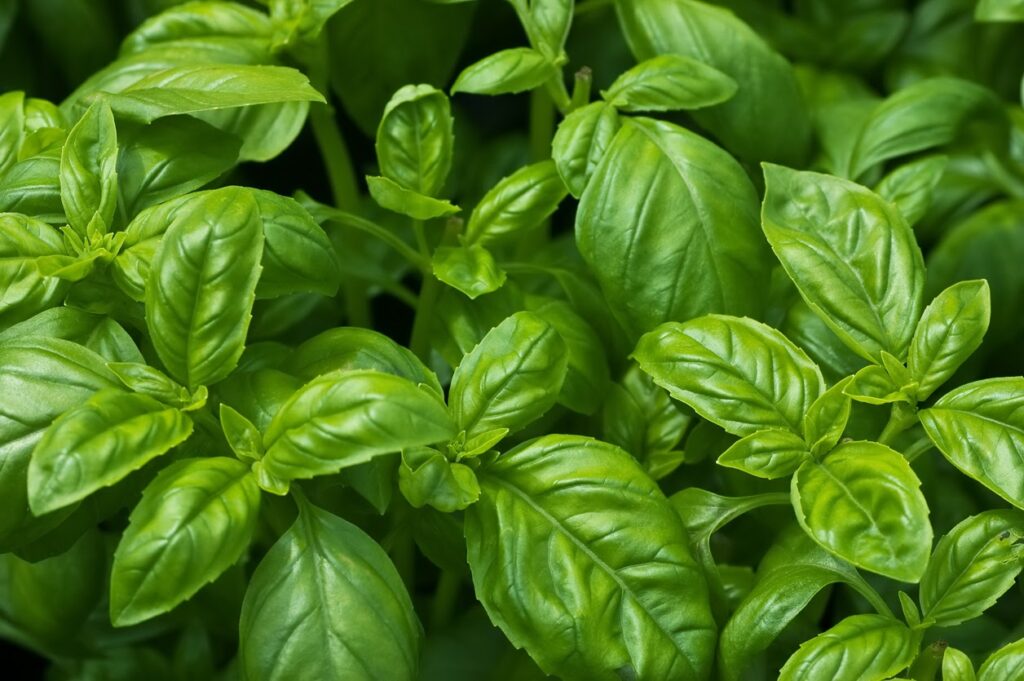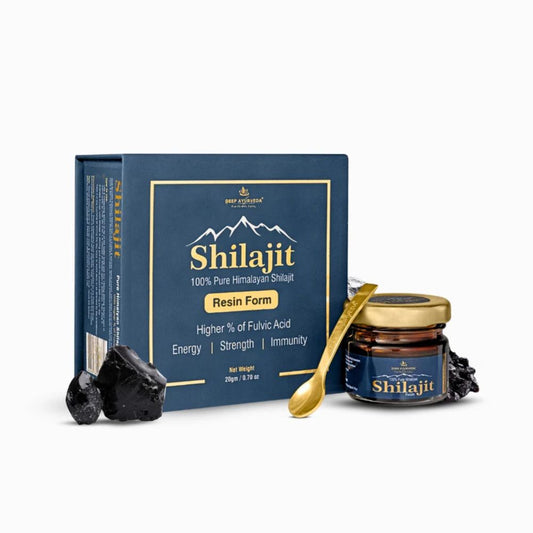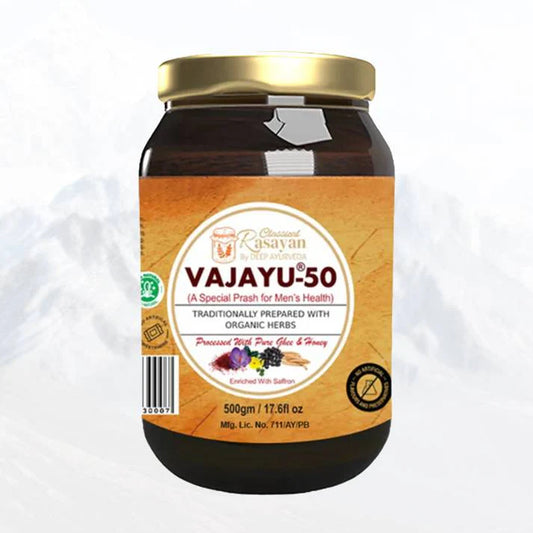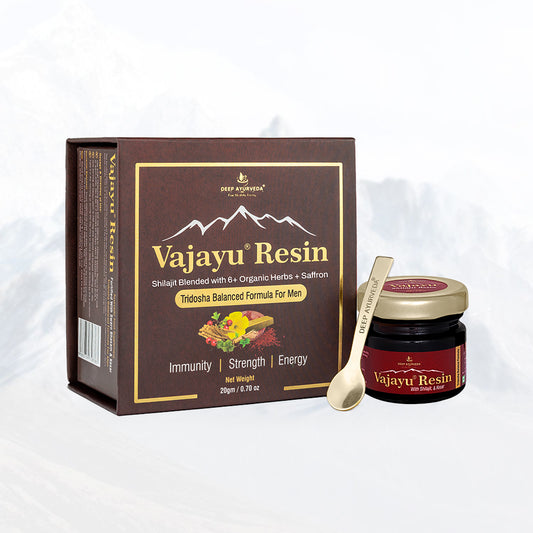Introduction
Basil, or Tulsi in India, is not just a kitchen herb but a sacred plant revered for its healing powers. Known as the “Queen of Herbs,” it has been used in Ayurveda for centuries for immunity, stress relief, and respiratory health.
In this blog, we’ll explore What is Basil, different Types of Basil, Basil Benefits, nutrition and its Ayurvedic significance,
What is Basil?

Basil (Ocimum species) is a fragrant herb from the mint family (Lamiaceae).
- Basil vs Tulsi: While “Basil” is a broad term used globally for culinary and medicinal varieties, Tulsi refers to holy basil species traditionally used in Ayurveda.
- Cultural Significance: Tulsi is considered sacred and is often worshipped in Indian households.
- In Ayurveda, Tulsi is a dosha-balancing Rasayana herb, it balances Kapha and Vata and is used in Ayurvedic medicines for cough, fever, digestion, and stress.
Types of Basil (Tulsi)
In Ayurveda, there are five main sacred varieties of Tulsi-
- Vishnu Tulsi (Ocimum sanctum)

- Color: Dark green leaves
- Has strong aroma and flavor.
- Used for boosting immunity and respiratory health.
- Traditionally taken in teas and kadhas.
2. Shweta Tulsi (Ocimum sanctum)
- Color: Light green to whitish-green leaves
- Also known as white Tulsi.
- Has cooling and calming properties.
- Beneficial for skin health and reducing stress.
3. Kapuri Tulsi (Ocimum kilimandschricum)
- Color: Green leaves with a camphor-like aroma
- Has a camphor-like aroma.
- Excellent for cough, cold, and sinus congestion.
- Widely used in Ayurvedic respiratory formulations.
4. Van Tulsi (Ocimum basilicum)
- Color: Bright green leaves with a slightly glossy appearance
- A wild variety, slightly sweet in flavor.
- Improves digestion and strengthens immunity.
- Has antimicrobial and antioxidant benefits.
5. Ram Tulsi (Ocimum gratissimum)
- Color: Green leaves, often broader than other Tulsi varieties
- Has a clove-like aroma.
- Good for heart health and stress relief.
- Used in traditional remedies for fever and infections.
Panch Tulsi Ark – Synergistic Blend of Five Tulsis
The combination of these five sacred varieties is known as Panch Tulsi Ark. This Ayurvedic formulation provides a wide range of health benefits including immunity boost, respiratory support, detoxification, and stress relief.
Health Benefits of Basil

- Boosts immunity
- Supports respiratory health (cough, cold, asthma)
- Reduces stress & anxiety (adaptogen)
- Improves digestion & gut health
- Good for skin & hair
- Supports heart & liver health
- Anti-inflammatory & anti-bacterial
Common Uses of Basil
- Culinary Uses – Indian teas, chutneys, soups.
- Herbal Teas & Kadhas – For immunity and colds.
- Aromatherapy – Essential oil for relaxation.
- Supplements – Tulsi powders, capsules, extracts, and Panch Tulsi Ark.
Home Remedies with Basil
Basil benefits can be enjoyed by preparing tulsi kadha, tulsi tea, or tulsi infused water at home. Other herbs such as ginger, black pepper can also be used along with Basil as per the issue being faced.
How to Grow Basil at Home

Basil can be grown easily from either seeds or cuttings. Follow these steps for healthy growth:
- Sow basil seeds in a pot and keep them lightly covered with soil. Seeds usually germinate within 7–10 days.
- Place the pot or garden bed where the plant can get 5–6 hours of direct sunlight daily.
- Keep the soil moist but not soggy—water only when the topsoil feels dry.
- Regularly pluck mature leaves, which also encourages new ones to sprout.
Precautions & Side Effects
- Safe in moderate amounts.
- Pregnant women and those on blood thinners should seek medical advice.
Modern Scientific Research on Basil
A clinical study found that taking holy basil leaves led to:
- About 18% decrease in fasting blood sugar
- About 7% decrease in post-meal blood sugar
Conclusion
Basil is more than just a herb – it is a healer, protector, and immunity booster. With diverse Basil Benefits, and unique varieties like Vishnu Tulsi, Shweta Tulsi, Kapuri Tulsi, Van Tulsi, and Ram Tulsi, this plant proves its timeless importance in Ayurveda.






